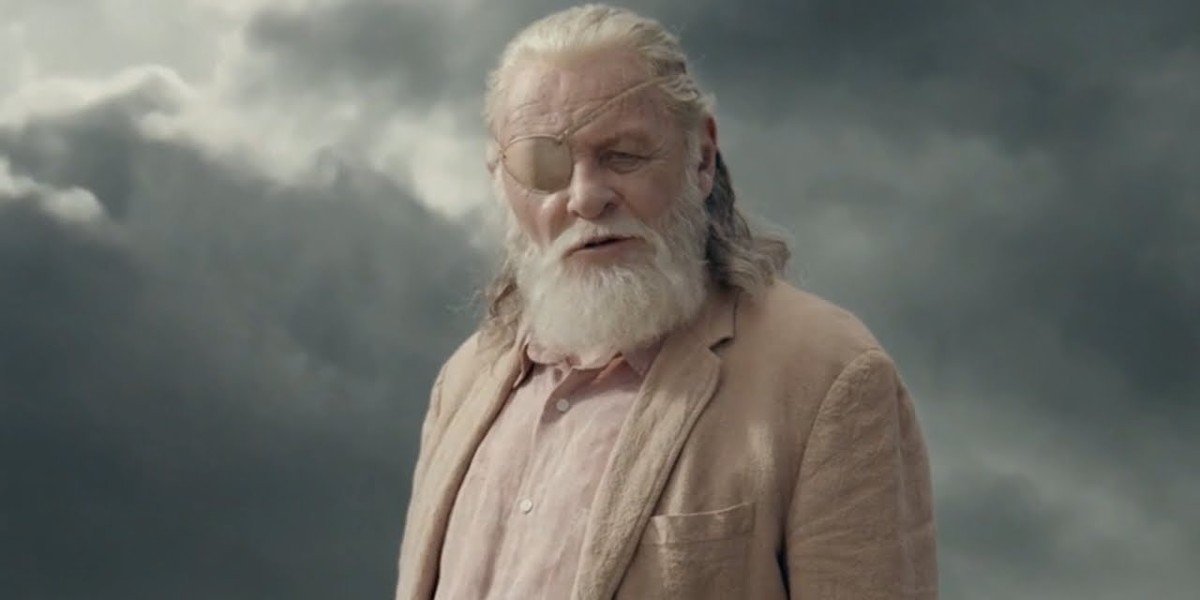We have an altar from which those who serve the tabernacle have no right to eat. For the bodies of those animals, whose blood is brought into the sanctuary by the high priest for sin, are burned outside the camp. Therefore Jesus also, that He might sanctify the people with His own blood, suffered outside the gate. Therefore let us go forth to Him, outside the camp, bearing His reproach. For here we have no continuing city, but we seek the one to come. Therefore by Him let us continually offer the sacrifice of praise to God, that is, the fruit of our lips, giving thanks to His name (Hebrews 13:10-15).
We watched Thor: Ragnarok the other day, and it got me thinking about Western Civilization, which was in the not-so-distant past referred to as Christendom.
It would be hard to look at the violence and depravity present in much of the modern post-Christian West and believe that society isn't going to hell in a handbasket. But isn't that the story of human society? I mean, human societies are full of humans, and humans are sinful and imperfect. There are ebbs and flows. There have been times of moral decay and moral awakening. But generally speaking, things get worse, and not better. And Jesus said they would get worse.
Maybe we need to stop worrying about these things as though our life depended on them. Maybe we need to let it go.
Paul didn't try to save western civilization as he preached and taught in Athens. He didn't tell them how great their society used to be, and that they needed to do a lot of things to make it great again. He instead preached Christ. He called those pagans to repentance and faith in Jesus for the forgiveness of their sins. He didn't have a First Amendment to protect his freedom of speech or his free exercise of religion. Ultimately, he got his head chopped off for his preaching. He was, nevertheless, fearless because he had Christ. He knew that even if they killed him, Jesus would make him alive again.
In the movie, as Asgard is about to be destroyed, Odin explains to a dejected Thor that Asgard is a people, not a place. Thor wants to save Asgard from destruction, but Odin basically tells him to just let it go. It's the people that make the kingdom. Wherever they are, that's where Asgard is.
In the past, Christendom has generally been defined as the Christian world. Some people include the United States. Certainly, many American Christians believe the United States to be a Christian nation, even if they don't refer to it as a part of Christendom. More broadly speaking, the word Christendom can refer to Christianity in general, but it has most commonly been thought of as a political division or entity in distinction from, as my 1921 Webster's Dictionary puts it, "heathen or Mohammedan lands."
But, like the fictional Asgard, Christendom is, in reality, a people, not a place.
Christendom is not a physical community or kingdom. It is all the pious, believing Christians assembled by the Holy Spirit who, working through the Word, creates faith in the hearts of men (Pieper, 1953). But it isn't a human organization, political entity, or a specific geographical location.
This does not mean that Christ's kingdom will always remain spiritual, however.
Christendom will not always be without physical substance. Our Christian hope is not limited to disembodied existence in Heaven for eternity. Our hope is in Christ. By being baptized into Him, our sins have been washed away. We are connected to Him and His resurrection. We confess that when Christ comes in judgment on the Last Day, He will call all believers from their graves and raise them to everlasting life. We will live with Him in the new creation, free from sin, death, and the devil forever.
That ending is way better than what happened to the Asgardians in the movie.
We have the same hope as Paul. We can be fearless like him because we know that, even if they kill us on account of Christ, He will raise us up on the Last Day. Maybe we need to worry less about trying to save our so-called Christian civilization by voting for the right secular politicians. Maybe we should instead repent of our sins and believe the Gospel, and call others to repentance and faith in Jesus for the forgiveness of sins. Maybe we should embrace the fact that here on this earth, we are pilgrims and have no continuing city instead of becoming more and more comfortable in this fallen and sinful creation. In Christ, we are subjects of a kingdom that is not of this world.
Not yet, anyway.
Works Cited
Pieper, Francis. 1953. "Christian Dogmatics," vol. 3. St. Louis: Concordia Publishing House.

No comments:
Post a Comment